
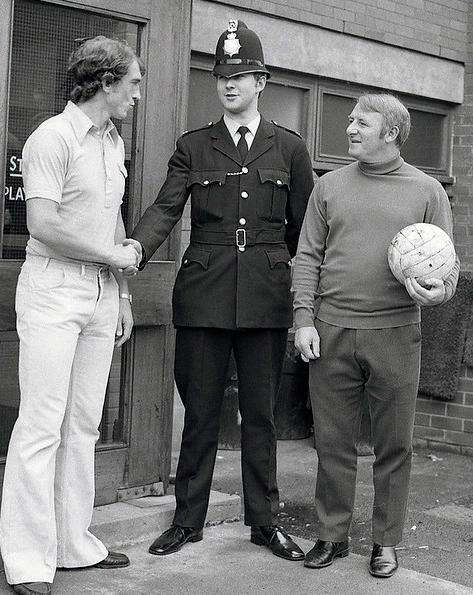
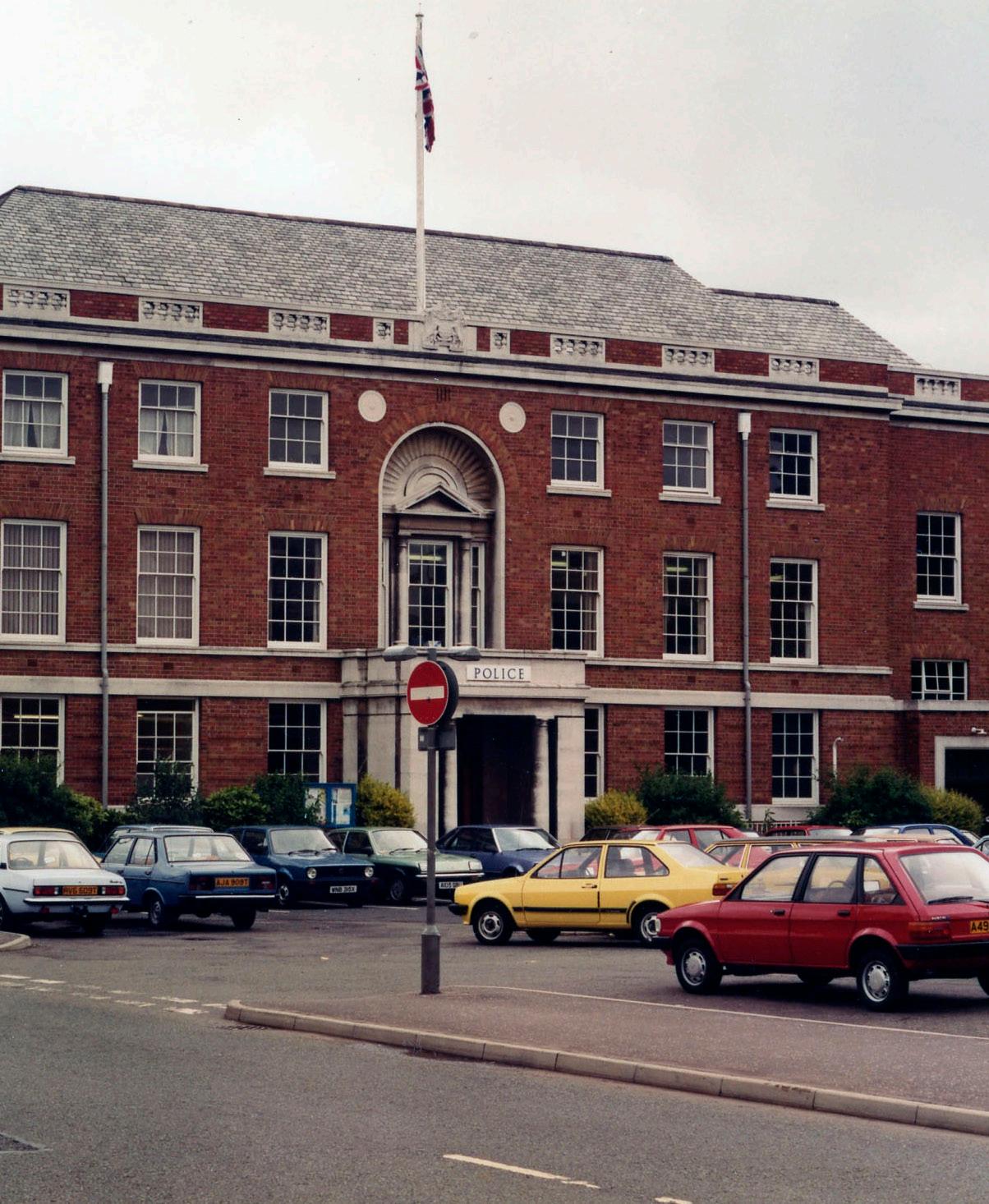
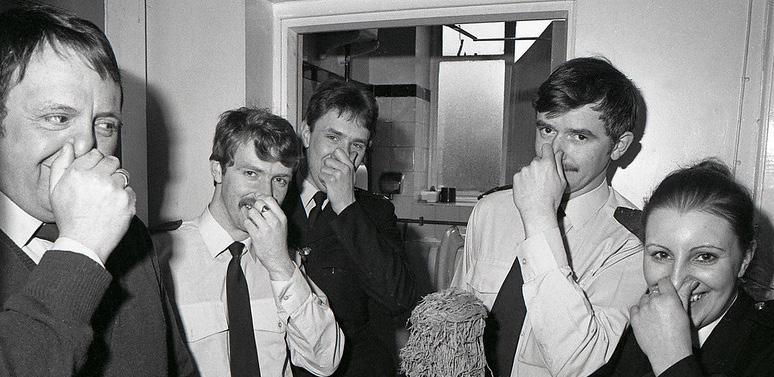
THE VOICE OF GREATER MANCHESTER POLICE SALFORD · APRIL 2024 50 YEARS OF GMP SALFORD
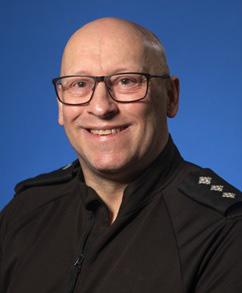
Hello Salford colleagues, I’ve now been at Salford as the Chief Inspector of Neighbourhoods & Partnerships for around 15 months, so many of you will know me already.
For those who don’t, here’s a bit of background. I joined GMP as a special constable at Bolton in 1996 and a full-time, paid officer at Salford in 1998. I’ve worked at Salford for most of my career, in a variety of roles and at every rank so far. My main roles have been response, neighbourhood and custody and even when I worked in custody, the bulk of my time was at Swinton.
Salford is a great place to be a police officer, and I was grateful to be posted back here when I left the custody branch in January 2023.
I am big believer in the fact that we are here for the public; victims in particular. In all the things I do in my
role, I try to think how this helps the public, or if this is the best way to assist victims.
I would urge everyone to access your original application form (if you have a copy) and re-read why you wanted to join GMP. I can guarantee that there will be something in there about public service, supporting victims and making a difference. If you ever find yourself drifting away from those values, then please use this as your barometer.
Everyday, I see examples of brilliant colleagues doing amazing things. One of the things I have done during my time at Salford is to redesign how we recognise and reward great performance and this is now starting to take shape. The process is simplified, and we have a voting panel sitting across all ranks and roles. Anyone can nominate a colleague for recognition, so please feel free to do so. Simply drop an email to #salfordrewardsandrecognition@ gmp.police.uk containing enough information for the panel to make a decision. I am keen that credit is given to worthy performance, so please don’t be shy in nominating.
I also strongly believe that we should never underestimate the seemingly small things we
do, because such things have a significant impact upon the people that matter, the public.
Even when faced with tough times and difficult choices, the individual resilience and professionalism in attitude, the persona we present to the public and genuine care we give to people allows us to positively stand out.
Policing can be tough, so I’ll offer an inspirational quote:
“When life seems hard, the courageous do not lie down and accept defeat; instead, they are all the more determined to struggle for a better future.” - HM Queen Elizabeth II
… and for those cops who are a bit longer in the tooth, here’s a quote you will most certainly recognise:
“When the going gets tough, the tough get going” - Billy Ocean.
Please bear in mind that I am more than happy to speak with people to share thoughts and ideas, so if you have any ideas on how we can improve things, then please do feel free to come and speak with me. I’m always approachable.
My final thought, something we can never say enough: public, public, public.
Chief Inspector Darren Whitehead
50 years of Greater Manchester Police
On 1 April 1974, following extensive local government reorganisation around the UK, Greater Manchester Police (GMP) made its debut.
The new force, made up of Manchester and Salford along with sections of Lancashire, Cheshire, and West Yorkshire Constabularies, became the largest provincial force in England and Wales.
At the time of its formation, GMP boasted 6,628 officers and 1,796 civilian staff – less than half of GMP’s current workforce – policing almost 500 square miles, with a population of 2.75 million inhabitants.
The 1970s saw the thenrevolutionary introduction of trousers into the uniform of female police officers, while the ’80s began with the Moss Side riots and ended with the
force’s first helicopter. In the 1990s, GMP sent two contenders to the Barcelona Olympics and launched its first website; the 2000s saw GMP successfully police the Commonwealth Games in Manchester and the launch of PCSOs; and the force continued to evolve through the 2010s with the introduction of Programme Challenger, bodyworn video and the Single Online Home platform.
The global COVID-19 pandemic beginning in 2020 changed the way we worked and interacted, with lockdown regulations and social distancing. 2022 saw the launch of the eminently successful ongoing Operation Vulcan, while our popular community messaging tool Bee in the Loop was released in 2023, celebrating its first birthday earlier this year.
We look forward to the challenges and successes of the next 50 years.

2 THE BRIEF APRIL 2024
POP awards highlight remarkable problem-solving achievements
The 2024 awards ceremony was hosted on Monday 18 March at the LifeCentre in Sale, with Chief Constable Stephen Watson handing out the awards.
During the event, districts and branches had an opportunity to recognise the good work being done by their colleagues and celebrate those going the extra mile.
Find out who scooped up the awards below:
• Best location-based POP Plan
Goose Green, Trafford: the area’s night-time economy (NTE) suffered a high concentration of incidents, mainly serious assaults and public order offences, occurring primarily during weekends in popular venues. The response required a comprehensive partnership strategy, targeted patrols during peak hours, effective use of CCTV, and a collaboration with local authority enforcement teams. These elements contributed to a dynamic and effective management of the Goose Green’s NTE-related incidents.
• Best POP plan to reduce high demand
Atherleigh Park Hospital, Wigan: the objective was to reduce ongoing high demand at Atherleigh Park, which included missing patients, reports of violence, repeat callers and staff working at the facility needing more support. The demand was reduced using dedicated officers, providing training opportunities to ward staff, attending regular meetings with staff and patients, and liaising with patients during their treatment and discharge.
• Best branch POP plan
Meet and greets, Manchester Airport: rogue ‘meet and greet’ businesses were targeting innocent victims, who believed they were leaving their vehicles with legitimate businesses. A tactical plan in collaboration with partner agencies was developed to control and remove the operation of such rogue businesses in the airport.
• Best POP plan for repeat caller
Repeat caller MC, CoM North: the plan centred around the high demand generator ‘MC’, whose struggles with aspects of borderline personality disorder and schizophrenia led them to accumulate over 400 calls each quarter. The plan helped get MC the mental health support that they needed, and the team worked with partners to make sure MC received the right care and medications. No calls have been made since August 2023.
• Best partnership POP plan
Repeat caller WM, Tameside: WM, who suffered a lifechanging brain injury in a traffic collision in 1991, had formed the incorrect belief that their mother had stolen their compensation money. Calls were of an identical nature, reporting theft of money. The plan focused on working with partners, including social carers and the subject’s solicitors.
• Best offender-centred POP plan
Repeat offender, Stockport: the plan looked at reducing the demand coming from a repeat youth offender, who had been linked to 27 incidents and 11 crimes over a period of three months. Victims included staff and students at the subject’s school, vulnerable juveniles, and local businesses. The subject is now back in school and engaging well with Youth Offending Service and partners. He has not been involved in any further incidents, crimes or intelligence in the
last three months – this represents a reduction in demand of 100%.
• Best problem-solver – officer, sergeant
Sgt Paul O’Donnell works in the CoM Central Licensing Team and has been a keen supporter of problem-solving initiatives. He is one of the first in the force to mirror his approach to the NPCC strategy and to engage partners to fully adopt the ‘scanning, analysis, response, assessment’ (SARA) model for problem-solving. He has also been involved in the implementation of a regional licensing meeting.
• Best problem-solver – officer, PC
PC Jon Terry works in the Tameside Neighbourhood Policing team. He has been vital in the delivery of the ‘No More Knives’ tour of schools and colleges across Tameside. His proactiveness and hard work during the sessions gathered overwhelming positive feedback from around 10,000 young people who attended them.
• Best problem-solver – PCSO
PCSO Sharon Whitmore works in the Oldham NBO Team. She has shown a keen interest in problem-solving and regularly provides advice to officers regarding the SARA model and long-term sustainable partnership intervention. Sharon has additionally become the district SPOC for neighbourhood civil orders, supporting district demand reduction by obtaining Criminal Behaviour Orders for repeat offenders.
• Best problem-solver – police staff
Jess Chamberlain works in the Trafford Prevention Hub. Her outstanding performance and unwavering commitment to her role have had a tangible impact, with key contributions including the support of school engagement and licensing officers, assisting with incident and crime analysis and FCC repeat caller research.
• Best district prevention hub – Tameside
Tameside Neighbourhood Prevention Hub has made remarkable progress over the past year, emerging as the top-performing district prevention Hub. The team’s work consistently demonstrates excellent problem-solving skills, with a strong focus on supporting the most vulnerable members of our society. Their prevention efforts extend to various areas, including addressing knife crime among children and strategically engaging with hotspot locations related to suicide attempts, showcasing innovation in tackling issues that cause significant harm in our community. Their approach places the individual at the centre, ensuring the best possible outcomes for all parties involved.
Congratulations to all those nominated, as well as to our POP award winners.
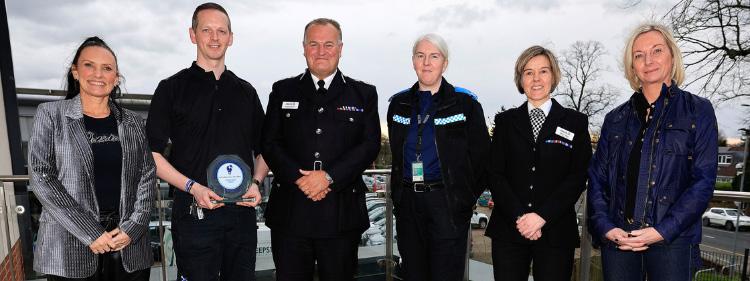
3 THE BRIEF APRIL 2024
“I felt like I was back home today”
GMP has seen different generations of many families climb up the ranks throughout the years, with one of those families being the Barton family.
Retired Specialist Operations Ch Supt Trevor Barton and his daughter ACC Sarah Jackson are just two out of eight members of the Barton family who have fulfilled their career in policing
Ahead of GMP’s 50th anniversary, we met with Trevor – who is now 80 – and ACC Jackson at Hough End to see how Spec Ops has changed since Trevor hung up his boots in 1995.
The pair were shown around by Ch Insp Paul Bray and spoke with some of the officers – and animals – who make up Spec Ops; including the Tactical Mounted, Dog, Aid, Unit, Vehicle Intercept and Firearms Units. They even got to see GMP’s new horse Trooper in action, training amongst his peers and preparing for his first GMP outing in the not-so-distant future.
Where it all began
The legacy began with Trevor’s father, who joined Lancashire police nearly a century ago in 1925. When Trevor left school, he didn’t intend to follow in his father’s footsteps, but somehow ended up doing just that, becoming an officer in Lancashire, alongside his brother Bob. Trevor then married a fellow police officer, Mary, and they had two children, Sarah and Stuart, who both went on to choose a career in policing – where Sarah met her spouse, retired DS Paul Jackson.
A new start
Trevor and Bob were part of the cohort of officers from a number of Northwest forces which amalgamated on 1 April 1974 to form what is now Greater Manchester Police.
Trevor was originally assigned as Detective Inspector of the Serious Crime Squad West, from which he worked his way through the ranks and took on many roles across various branches and districts over the years.
He told us about the time an admin error saw his brother Bob promoted into a role that was meant for Trevor. This led to them both being housed in a police house a few doors up from one another in Leigh, which was the start of his love affair with the area of Greater Manchester that he still calls home today.
We asked Trevor to share some memories of his time at GMP: “One thing that always makes me smile is the time I was coming back off earlies to Stretford police station and a lady ran in the road in hysterics to stop me.
“She explained her dog had died and was on the road in the gutter. Being a young officer, I decided to do what I thought was

the right thing at the time and help her, even though it would make me late back off my shift.
“My partner and I got two spades, dug a grave for the dog, and laid it to rest. The woman was really thankful and asked us to raise a small toast with her in memory of her late pet.
“Unbeknownst to us, when we got back to the station and even though our shift had ended, we would still get in trouble for drinking on the job and for not following procedure – but how were we to know it was the council’s job to dig a grave and bury the dog, not ours? They say you learn something new every day, and I certainly never forgot that.”
Promotion
Trevor’s last role was as the Chief Superintendent in the X division, where he served until his retirement in July 1995.
One of his proudest moments in the role, and arguably one of the most important advances for the force, was when he purchased the first ever GMP helicopter in 1987. It flew its first operation on 7 December 1988 and was the first helicopter to take off from a city centre in the UK – and Trevor even has the photo to prove it!
Trevor reminisced about throwing a stinger for the first time after the then-chief constable brought one back from a conference in America. After its first use he decided to buy 44 more, against the direction of superiors, and implemented what is now considered an essential tools for pursuits and specialist operations.
Front page news
Trevor spoke about the morning he came in to work and saw he was on the front page of the Daily Telegraph, after orchestrating the first ever nighttime training exercise for public order.
“Policing a riot at night is extremely dangerous, with officers coming up against scenarios we just can’t train for in daylight. We wanted to make sure our teams had the training to prepare them for such an occasion so planned to train in realistic surroundings.
“After the exercise, it turned out that we ended up with around 30 officers in hospital with injuries they’d sustained during the training.
“I was called upstairs to the 11th floor of Chester House. When that happens you know you’ve either done something really good or something really bad, and I had an educated guess about which it would be.
“Much to my surprise, ACC Dave Phillips said: ‘that was great work, we must make these exercises as realistic as possible, you’ve done a great job’! I was pleasantly surprised to have the backing of the Command team, but it was a steep lesson that paved the way for protecting the health and safety of officers in training.”
Meeting the chief – a blast from the past
ACC Jackson: “For years my dad’s been telling anyone who would listen a story about the time he arrested the most people ever in one go, and no one in the family has ever truly believed him.
“That was until a couple of years ago when my dad met Chief Constable Stephen Watson and much to my surprise, he confirmed that the story was in fact true, and he was actually one of the officers who was part of the operation.”
Trevor elaborated: “Lancashire Tactical Aid Group (TAG) came down to Greater Manchester following a group of ravers who broke into the market hall in Westhoughton and set up an illegal rave.
4 THE BRIEF APRIL 2024
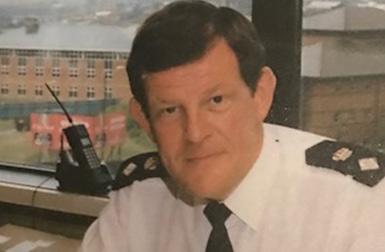
“I was the inspector on night cover at Wigan at the time. I had one police officer, one dog and one sergeant who was about 109 years old on shift, so we called in our TAG and made a plan with Lancs to put an end to the rave and arrest everyone.
“We had Lancs go round the back of the building to force entry, and as all the ravers rushed to try and stop them from getting in, we smashed the windows at the front of the building and were able to get in before anyone could get out.
“I stood up with my megaphone and announced, ‘you’re all under arrest for breach of the peace’. We arrested all 167 people alongside confiscating all sound equipment and records. It was a great success but such a huge operation that it meant some officers had to take their prisoners as far as Stafford to be held in custody.
“I’ve been telling my kids for years that I’ve arrested more people in one go than any other police officer in GMP and they’ve never believed me, but it turned out that one of the PCs from the Lancashire TAG – the one who had to take his prisoners all the way to Stafford – is now GMP Chief Constable Stephen Watson, so now they’ve heard the story from him too they have to believe it!”
Trevor went on to explain that a few weeks later some of the ravers approached GMP sheepishly requesting the return of their equipment, so he agreed to give it back under one condition: that they wouldn’t do it again. A family man
Trevor told us of his pride at how much his children have achieved in their careers, both becoming great leaders. Stuart retired as a chief superintendent after serving the majority of his career in GMP.
ACC Jackson said: “From a young age, our parents instilled a good work ethic into us. We were always taught right from wrong and knew that doing the right thing was important, whether in school, with our friends or later in our careers.
“I had a lovely childhood but always knew my dad was the boss at home as well as in work. One year the kids on the street decided to give ‘awards’ out and he won scariest dad on the street; they all knew not to mess with him because he was a tough guy. We knew that we had to work hard and that failure wasn’t an option, but it was easy to see it was because he cared about our success and he wanted us to do well in life.”
Reminiscing
Thinking back over his time at GMP, Trevor commented: “We used to call the times that stood out ‘purple patches’. Over the years I’ve worked out that it’s not what you did, but it’s what you and the fantastic team of people around you achieved working together, when for a period of time you all just clicked and ran like a well-oiled machine. When that happened, we had some
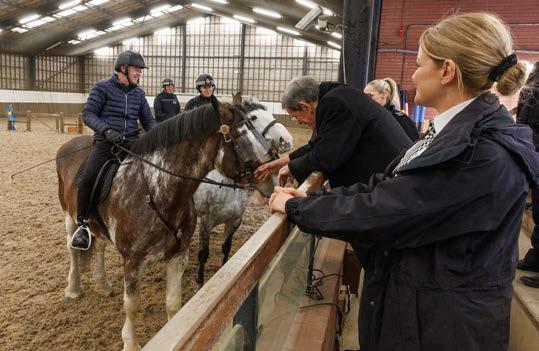
great times and carried out some amazing work, making a phenomenal difference to the good people in our community.
“Being an officer is a great job, but it’s not always easy and you have to deal with tough situations regularly. From the 4am phone calls asking for my go-ahead to put down injured horses, to receiving the call no one wants to pick up letting you know one of your team have been killed in the line of duty. It was all part of my job; sometimes I was the one making the decisions, but none of it mattered without the team working together and doing a great job.”
The future
Did Trevor’s experience meeting the teams today instil confidence in the future of policing? “The force has had a rough few years but it’s visible that with the current chief, things are changing and moving in a positive direction. CC Watson is a great leader and after spending time with the teams I can see how that filters down and people are proud to work for GMP.
“Some things change, but some things don’t. Technology moves on with time, but there are still bad people doing bad things and you’ve got to intercept them while also looking after the good people, because there are a lot of very good people. That’s why you become a police officer; that’s the job.
“In any situation, you must work out quickly what you are doing and follow it through. Standing up and sticking by your decisions even if they make you unpopular is tough, but being proven right against the odds is a great part of being an officer and I did that plenty of times in my career.
“I feel like I’ve been back home today. The teams I’ve spoken to looked smart, were experts in their field and it was clear that they are proud to represent GMP in their work.
“The next 50 years look promising for GMP, and who knows, maybe there’ll be another member of the Barton bloodline climbing up the ranks who can be interviewed for the 100-year commemorations.”
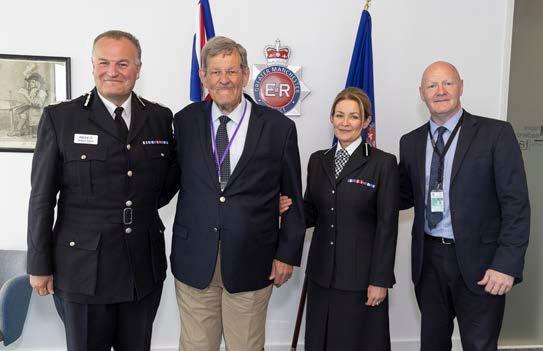
5 THE BRIEF APRIL 2024
District and Branch
Nominations are now open for GMP’s district and branch awards, celebrating excellence across the force.
The awards, which are open to all members of the GMP family, provide an opportunity to recognise and celebrate the officers, staff members, volunteers and apprentices who have done themselves and the force particularly proud over the past year.
Each of the districts and branches which make up GMP hold their own recognition events, with the winners put forward for the annual awards later in the year. This year’s award categories are:
• Police officer of the year: someone we can hold up as an example of the best that Manchester policing has to offer.
• Special officer of the year: someone who goes above and beyond what is expected of them to serve the force and their community.
• Student officer of the year: the future of the force.
• Police staff member of the year: someone who consistently produces excellent work, helps others and contributes to the smooth running of the force.
• Apprentice of the year: an asset to their team – someone who
Get your nominations in for the district and branch awards! Project Servator training boosts airport security
Members of GMP’s airport policing team have undergone specialist Project Servator training to further strengthen security at Manchester Airport.
Project Servator is a collaborative policing tactic used by a number of UK forces, including GMP, aimed at disrupting a range of criminal activities – including terrorism – while providing a reassuring presence for the public.
The GMP officers completed a five-day Servator training course at the airport and will be available to support colleagues on deployments across the force.
Ch Insp Gayle Brister said: “Police, partners, businesses and the public are all working together to make the UK a difficult place for criminals and terrorists to operate and that includes here at the airport.
“A key tactic we use in partnership with airport security, British Transport Police and Border Force is Project Servator. The approach relies on unpredictable and highly visible police deployments, while also building a network of vigilance made up of business and community partners and the general public.
“Our officers are experienced and specially trained to spot the tell-tale signs that someone is planning or preparing to commit an act of crime and having extra trained officers will strengthen that.”
The highly visible Project Servator deployments can take place at any time and in any location. They make use of
is industrious, professional and willing to learn.
• Volunteer of the year: someone whose unpaid work benefits the force, the wider community or both.
• PCSO of the year: someone passionate and dedicated, who puts their knowledge of their neighbourhoods or communities to use in their day-to-day policing.
• Team of the year: the team can be any size and could comprise staff, officers or a combination of the two – what’s important is their innovative and collaborative approach.
• Problem-solving: entries should have identified a significant issue affecting some aspect of GMP and devised a novel means of addressing it.
• Innovation: applying new or unconventional approaches and making maximum use of the resources and technology available.
• Reactive criminal investigation of the year: launched following a report that a crime has taken place.
• Proactive criminal investigation of the year: intelligence-led and often wide-ranging.
• Unsung hero: the behind-the-scenes stars of GMP who make our lives better in a multitude of small ways.
• Bravery: celebrating outstanding bravery, from performing lifesaving first aid to putting themselves at risk to protect others.
If you want to put a colleague forward for an award, the form can be found via the Awards team’s intranet page, or email awards.team@gmp.police.uk if you have any queries.
resources including uniformed and plainclothes officers, police dogs, the mounted unit and, when a deployment is based at the airport, armed officers.
A spokesperson for Manchester Airport said: “The safety of our passengers and staff will always be our top priority.
“Thankfully, instances of crime at the airport are extremely rare and people can feel safe and relaxed as they begin their holidays here. Part of the reason for that is the police presence provided by Project Servator, which not only reassures passengers but deters those who may wish to commit crime here.
“It’s great to see more officers getting the specialist training needed to be part of Project Servator as we head into the busy summer season.”
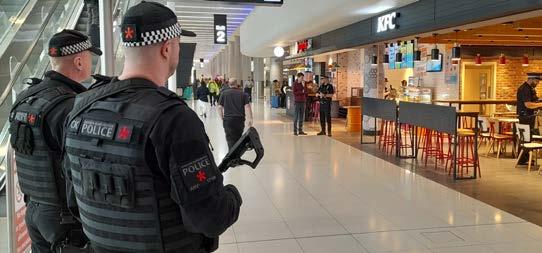
6 THE BRIEF APRIL 2024
1974: a year which saw the world population reach four billion, West Germany win the World Cup and President Richard Nixon announce his resignation following the Watergate scandal. That same year, Greater Manchester Police was formed.
1 April 1974 saw the amalgamated Manchester and Salford police forces merge with portions of Lancashire, Cheshire, and West Yorkshire Constabularies, resulting in the largest provincial force in England and Wales.
At the time of its formation, the force had 6,628 officers and 1,796 civilian staff – less than half of GMP’s current workforce. The new areas to be policed covered a total of almost 500 square miles with a population of 2.75 million inhabitants.
The ’70s saw new breakthroughs, such as the introduction of Telenet – considered to be the first internet service provider – as well as the first digital camera invented. However, with new emerging technology and trends comes newer crimes. Large-scale drug trafficking, hijacking of expensively laden lorries and armed raids on stores and building societies also threatened the fabric of local life. Following this, it was finally decided to set up specialised police squads to attempt to tackle these problems, often liaising at a national level.
1976 saw our Hough End site open, where it still continues to house GMP’s dogs and horses today, while the ‘D’ Division of GMP took over the policing of Manchester International Airport.
The early 1980s were turbulent; 1981 saw outbreaks of serious public disorder with the Moss Side riots, which resulted in 241 arrests in the immediate area and a further 229 people arrested elsewhere in Greater Manchester over a four-day period. Just three years later, the national Miners’ Strike dominated headlines and put a great strain on resources, with members of GMP dispatched to various parts of the country to assist other forces.
In the 1990s, Manchester became Britain’s centre of cool through its culture, music, and legendary nightlife. While Oasis was making waves and the Hacienda was in its prime, GMP saw its resources stretched once again. The ambulance strike saw GMP vehicles converted for use as ambulances, and was followed in quick succession by serious rioting at HM Prison Strangeways.
As GMP entered the 2000s, the ‘Livescan’ fingerprint system allowing suspects’ fingerprints to be electronically scanned and compared with computer databases entered police stations. When Manchester took centre stage as the host for the Commonwealth Games in 2002, the force was tasked with accounting for all circumstances to ensure the
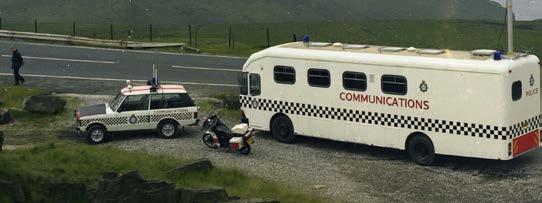
event ran smoothly – a plan which had been occupying special planning teams since 1995!
The 2010s began amid the chaotic wake of a global financial crisis and ended with the world on the brink of a global pandemic. In 2017, the UK stood still as news broke of the Manchester arena attack, forever changing the city and how it’s policed.
In the last few years, GMP has continued to evolve; the introduction of Chief Constable Stephen Watson had led to significant change – most importantly, the force exiting Special Measures in October 2022.
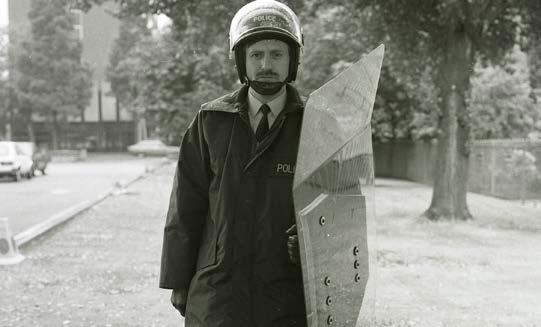
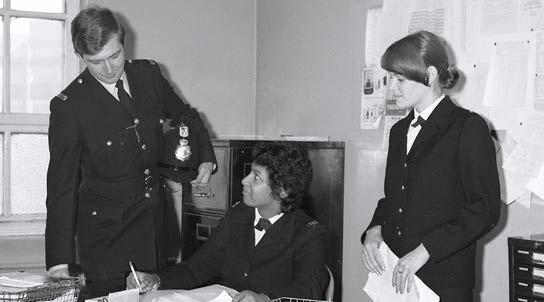
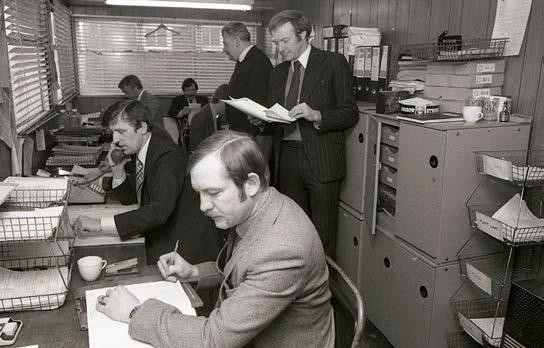
7 THE BRIEF APRIL 2024
- 1974: The Manchester & Salford police joined with parts of the Lancashire, Cheshire and West Yorkshire police forces to create a new force – Greater Manchester Police.
- 1976: The City of Manchester Airport Police merged with Greater Manchester Police.
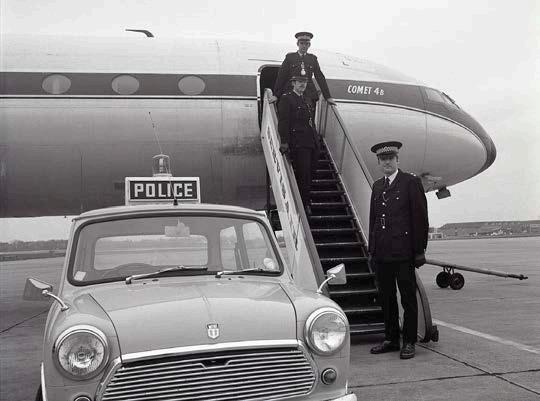
- 1977: Policing in trousers – trousers issued for the first time for female officers as part of their uniform.
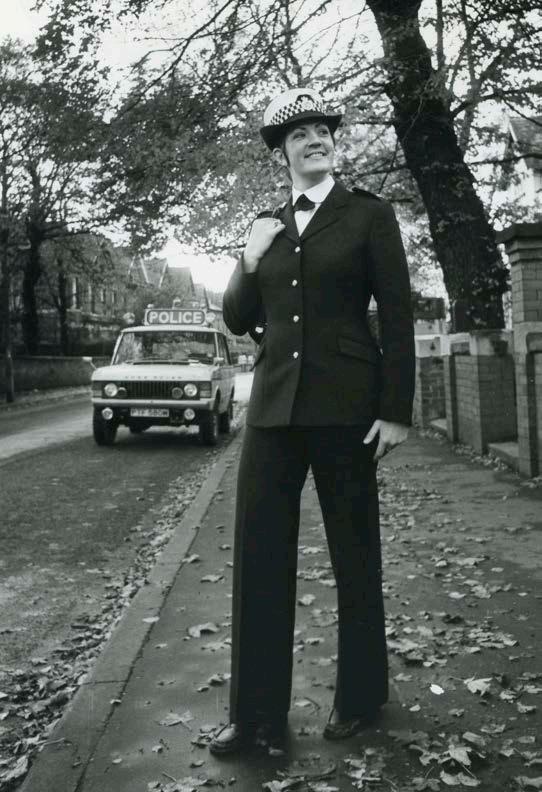
- 1979: GMP moved into its new headquarters at Chester House, Old Trafford.

- 1981: The GMP Museum opens. Funded by GMP, it collects and preserves archive material and objects relating to the history of policing in the Greater Manchester area, and acts as an important resource for community engagement, where visitors can talk to staff and volunteers about policing.
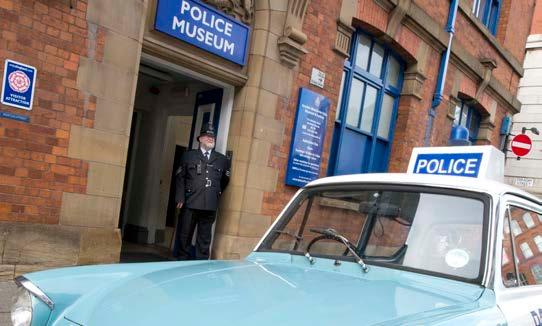
- 1985: On 22 August an Airbus Boeing 737 plane burst into flames on the runway at Manchester Airport killing 55 people. GMP was praised for the way the incident was policed and for the investigation that helped identify the victims and the sequence of events leading to the tragedy.

- 1987: GMPs first female Ch Supt saw the creation of the British Association for Women in Policing. The same year GMP appointed the force’s first female divisional commander, Chief Supt Margaret Gornall, taking charge of the South Manchester Division. 1977
8 THE BRIEF APRIL 2024
- 1989: GMP purchased their first helicopter, a Twin Squirrel made by Aerospatiale.

- 1990: Rioting broke out at HM Prison Strangeways which lasted for 25 days, with 194 prisoners and staff injured and two people dead. The damage caused was estimated at £60 million.
- 1993: Quick cuffs, with a rigid bar instead of a chain link between the two wristlocks, were introduced.

- 1996: The IRA exploded the largest terrorist bomb ever seen on mainland UK. Officers evacuated an estimated 80,000 people from the city centre. Amazingly there were no fatalities.

- 1996: GMP launched its first website.
- 2002: Manchester hosted the Commonwealth Games, managing over a million visitors to the city centre over 11 days.

- 2003: Manchester played host to EuroPride in 2003 with around 37,000 people in attendance, including Greater Manchester Police for the first time. At the closing ceremony it was announced that subsequent events would be known as ‘Manchester Pride’.
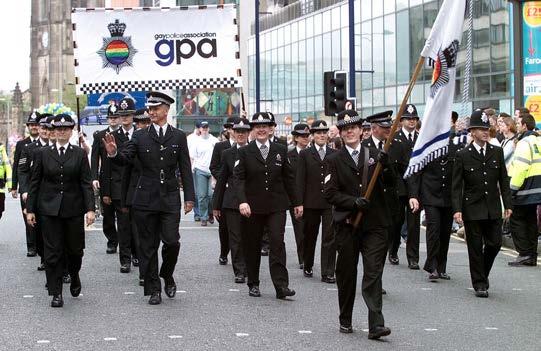
- 2006: Moss Side residents applauded as black police officers from around the world marched past their homes during the annual conference of the National Black Police Association.
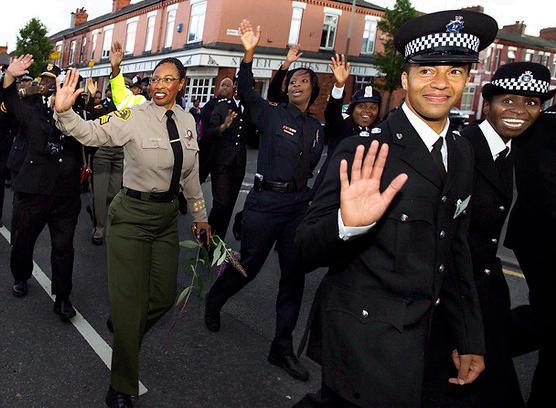
- 2007: The GMP Counter Terrorism Unit (CTU) was established in April to tackle terrorism and extremism.
9 THE BRIEF APRIL 2024
- 2010: For the second time in its history GMP headquarters was on the move again. In April the force took possession of a new building in Newton Heath.
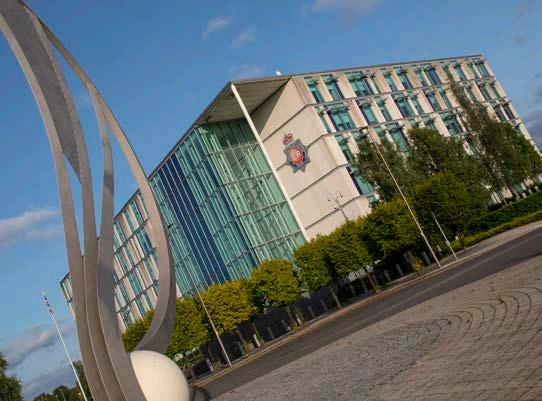
- 2014: Programme Challenger was launched in 2014 as the multi-agency response to groups involved in serious crime across the city-region.

- 2016: Following a pilot on the North and South Manchester Divisions, Body Worn Video (BWV) technology was introduced across the force.
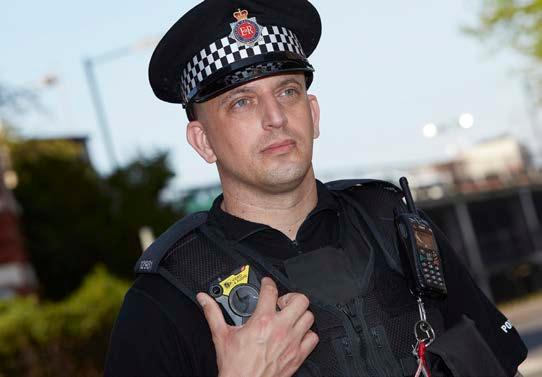
- 2017: On 22 May 2017, suicide bomber Salman Abedi set off a bomb at an Ariana Grande performance at the Manchester Arena, killing 22 people and injuring over 1,000 people. In 2020, his brother Hashem Abedi was tried and convicted for murder, attempted murder and conspiracy, and he was sentenced to life imprisonment with a minimum term of 55 years. Grande hosted a benefit concert on 4 June entitled One Love Manchester, raising a total of £17 million towards victims of the bombing.

- 2020: Stephen Watson joins GMP.

- 2020: In March 2020 the whole country went into lockdown and a new way of working was initiated. Officers were soon having to enforce new rules and regulations.

- 2021: GMP ran the first AVRO Operation - flooding a district with a day of action providing high arrest rates and positive community interaction.

10 THE BRIEF APRIL 2024
- 2022: In June 2021 GMP were put into special measures, but just over a year later in October 2022, GMP had managed to work their way out. Following the Plan on the Page, significant improvements were made, turning GMP into the most improved force.
- 2022: Op Vulcan is launched to tackle counterfeit goods on the streets of Manchester. In its first year Operation Vulcan shut down over 200 shops, made over 220 arrests, seized over 1,000 tonnes of counterfeit goods and seized around £520,000 of criminal cash.

- 2022: Elizabeth II, Queen of the United Kingdom and the other Commonwealth realms, died on 8 September 2022 at the age of 96. GMP officers were sent on mutual aid as well as tasked with managing events across the city centre.
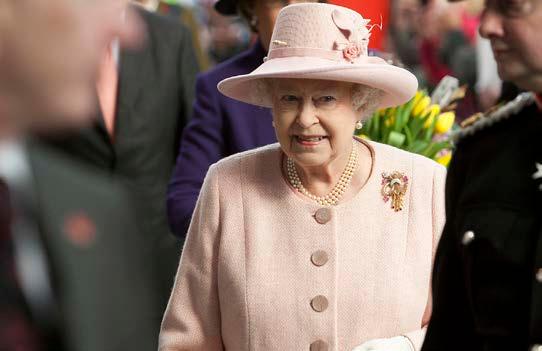
- 2023: The Police Uplift Programme was a three-year national government programme established to recruit an additional 20,000 police officers in England and Wales by the end of March 2023. GMP not only met the Home Office target of 7942, but recruited an additional 189 for a total of 8131.
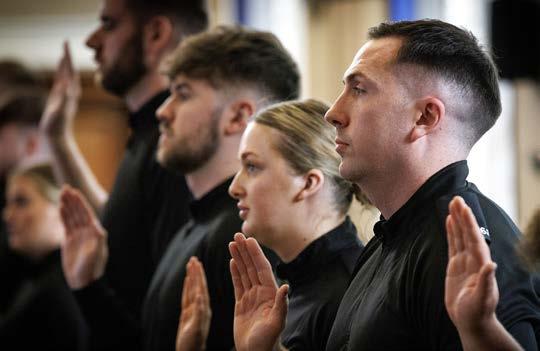
- 2023: GMP were the only force to have been shortlisted for three national awards that recognise the force’s problem-solving initiatives. In October of 2023, Operation Vulcan took home the prestigious Tilley Award.
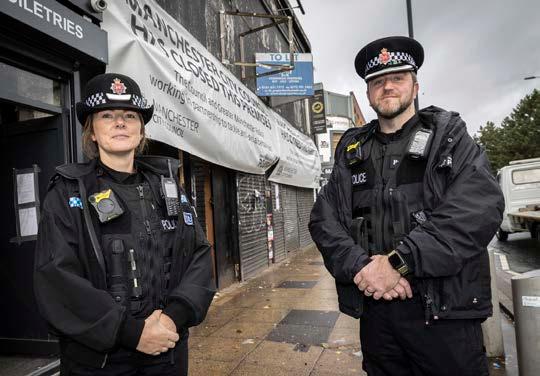
11 THE BRIEF APRIL 2024
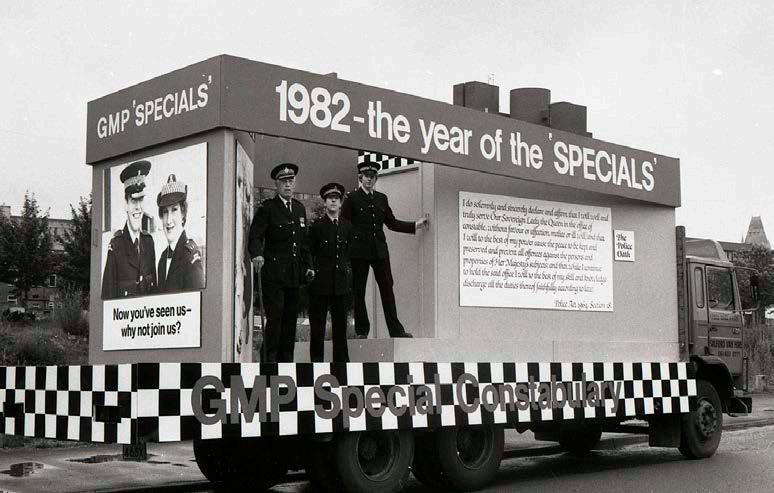
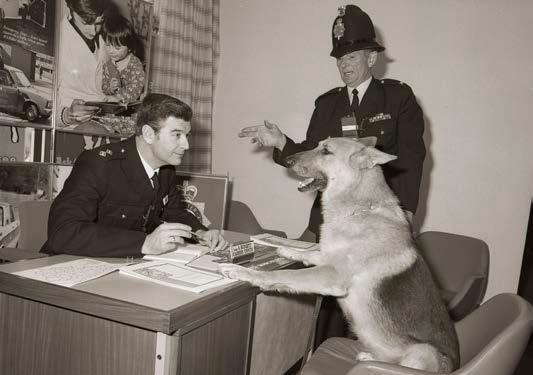
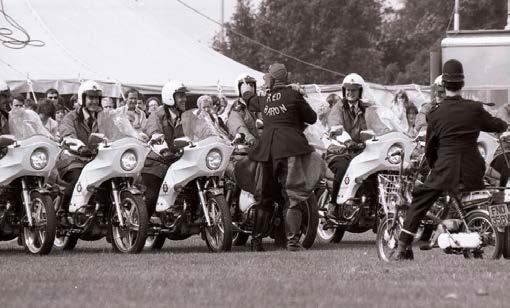
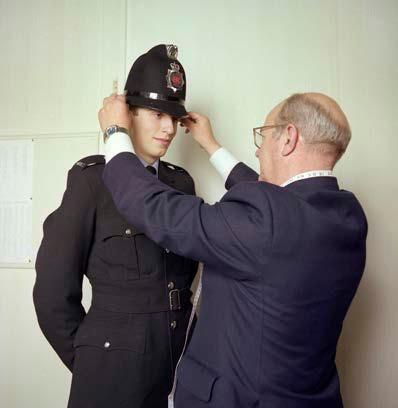
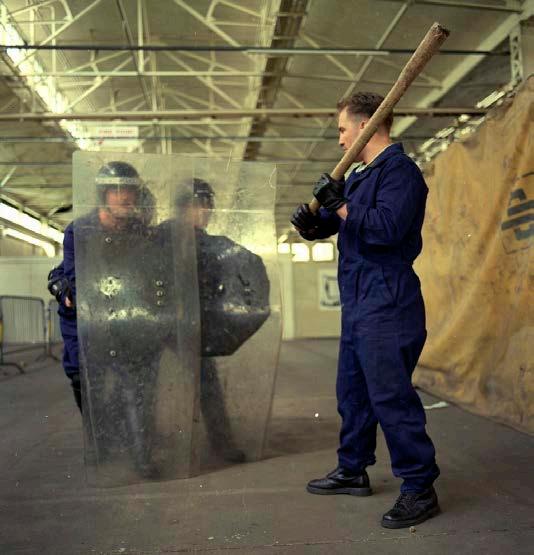

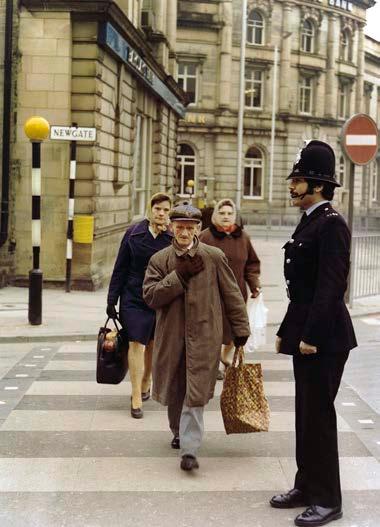

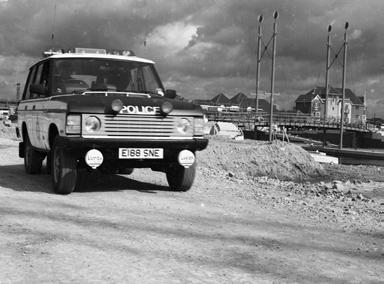
12 THE BRIEF APRIL 2024
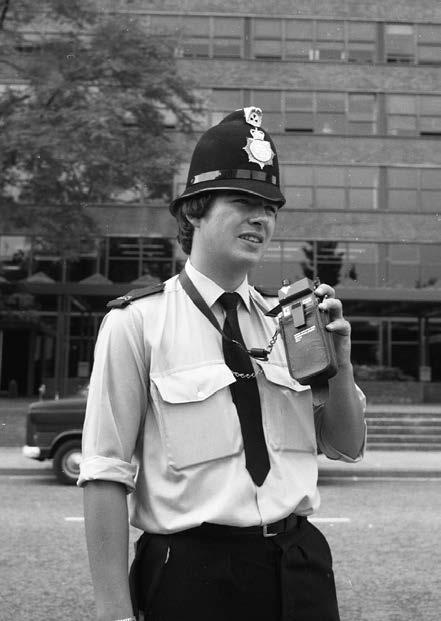
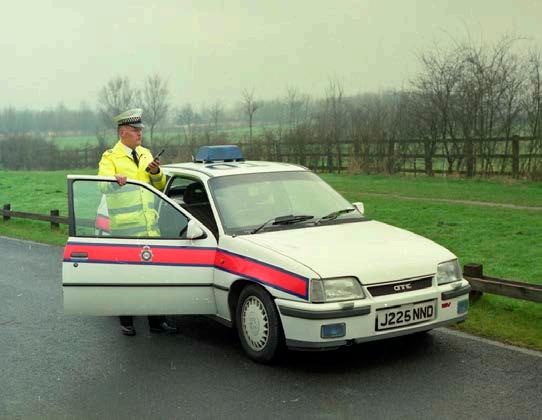

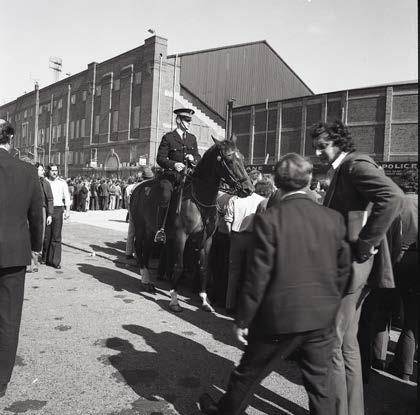
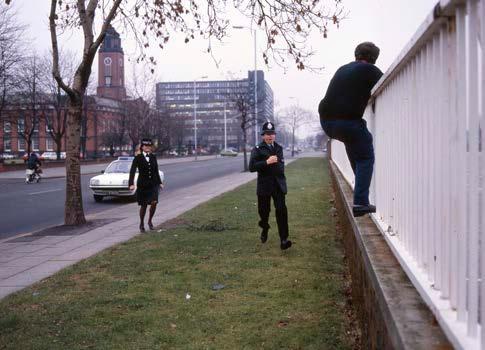
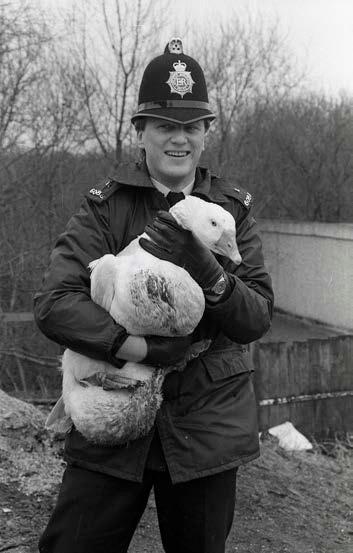
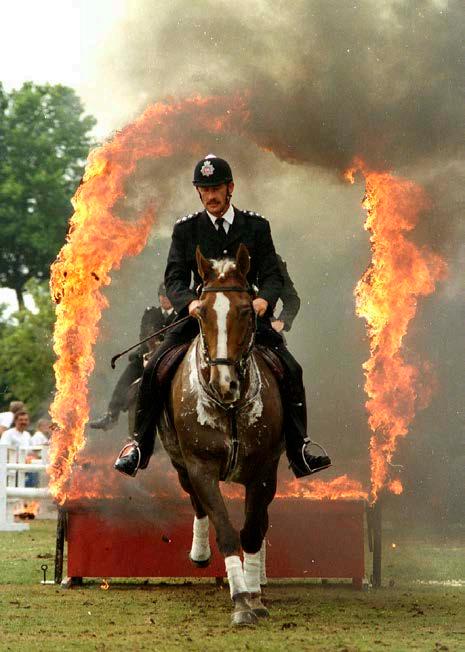
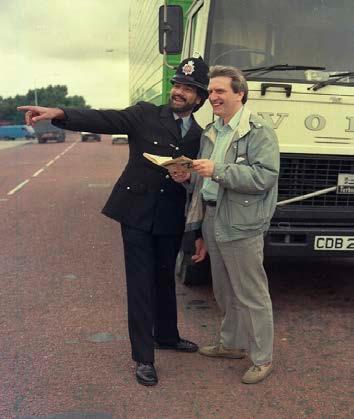
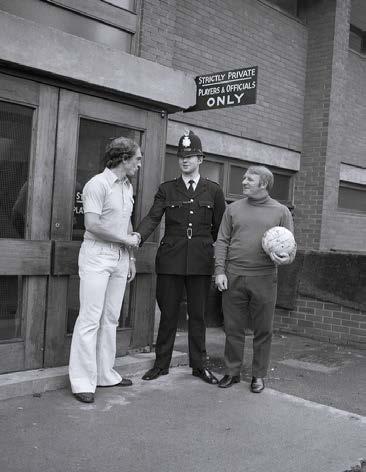
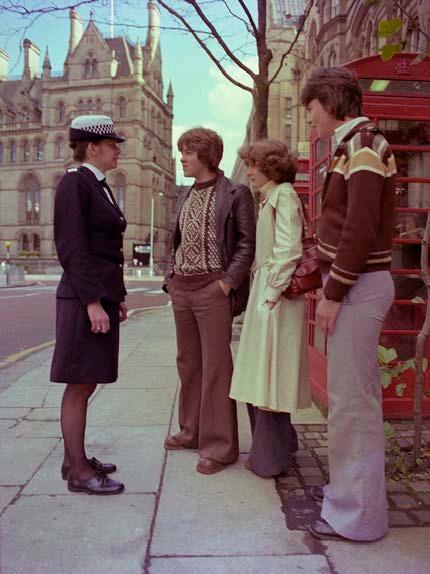
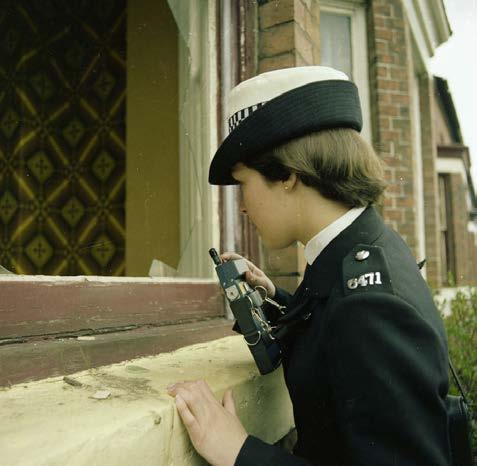
13 THE BRIEF APRIL 2024
GMP at 50: Irene Chan looks back

Since Irene Chan joined GMP’s as Force Intelligence Bureau (FIB) in 1990 as a criminal intelligence officer, she has seen the force change beyond recognition.
“When I joined, over 30 years ago, GMP had manual and paper filing systems,” she told us. “It was before computers had really been invented and we didn’t have the digital technology that we have today. Having that technology at our fingertips as we do now has really made a huge difference to the work we do, allowing the organisation to progress more efficiently and effectively.”
Over the past 35 years Irene has held a number of roles at GMP, including working as a clerk in the central ticket office, local intelligence officer, FIB intelligence officer and intelligence analyst. She currently works as a development, retention and progression officer in the Workforce Development Unit, based at Sedgley Park; and is now also a wellbeing SPOC and a Mental Health First Aider – roles which simply did not exist in the days when she first joined the force.
She commented: “As a force, GMP has managed to overcome many challenges and has shown great resilience over the years. It may be a cliché, but the force has been on a journey for the last 50 years; and culture changes are at the heart of this journey. Establishing police networks, staff associations, wellbeing support and diversity and equality – these are just some of the initiatives that have made a real difference over the years.
“In particular I remember Karin Mulligan, the first black woman in the UK to reach the ranks of chief inspector
and temporary superintendent at GMP. She dedicated enormous amounts of time and energy to moving GMP forward on equality and diversity issues. She really made a big difference, and she is a major part of why I’m still with GMP today.
“I’ve been with GMP at some of its most challenging times: the terrorist bombing incidents that affected officers, staff, and the public alike, and of course when GMP was placed into ‘special measures’ following its 2020 police effectiveness, efficiency and legitimacy (PEEL) inspection. It’s been tough at times, but I feel confident that our focus on continuous improvement will get us where we need to be.
“I would like to take this opportunity to thank GMP for hiring me. I’m from a Chinese background and I was one of the first people from an ethnic minority group to join the force – I’ve been growing with the force ever since. I feel proud to be part of GMP as it celebrates its 50th anniversary, and look forward to continuing to support GMP in its efforts to serve the public in the coming years.”
GMP at 50: Q&A with Fiona James

James has been with GMP for nearly 40 years and has held a number of different positions. We had some questions for her about her time with GMP:
When did you first join GMP?
I joined GMP on 25 November 1985 as a communications officer, working in the old force control room. The switchboard was located in a small room at the back of reception at Chester House, with the other control room located in Bootle Street Police Station. The force control room then opened in Chester House Phase 2 in 1986. I spent 17 years there and saw massive changes during that time. I then moved to the Home Watch coordinator’s role at Salford, and finally
onto the Crime Prevention team. What do you feel most nostalgic about from that period?
I was only 18 when I started and absolutely loved the free Thursday night disco at Hough End – we used to work a 12-8pm shift, so we’d all bring a change of clothes and make-up, getting changed in the refs room at the back of the switchboard room! My best friend at the time was Angela Cornwell, and we remain close friends today. What aspects of policing have changed the most since you started?
It’s got to be the technology – we used to take 999 calls, record them on paper logs and then ring the divisional control room to pass the message on. There were also much fewer police staff in those days and, sad to say, some officers appeared to resent us being there…thankfully things have changed for the better.
How do you think policing will change in the next few decades?
Technology will obviously keep improving and make life easier for us and the public. I’m now a crime reduction coordinator within a small team; we work closely with academics to run evidence-
based trials to reduce crime, and I can only see this getting better and more integrated.
Tell us about some of your most memorable experiences with GMP.
I come from a family of police officers: grandad, dad, husband, brother-in-law and my brother (a forensic scientist). I remember my dad being duty inspector in the Force Control Room when I came in for an 8am start one weekend; I hadn’t been home for a few days as I was staying with Angela and he just said: ‘Nice to see you for a change!’.
When I left the control room I went to Salford as a Home Watch coordinator. I organised an annual conference for all the volunteer coordinators and remember walking in with someone from the old press office: he made a comment about only expecting 50 or so people, he was amazed to see over 300 people in the room! We had invited a vicar who was a reformed offender to speak, he had a massive impact on everyone that night.
And finally …
I’ve been in my current role for 20 years. It’s the best role I’ve had at GMP and I’m not going anywhere!
Crime reduction co-ordinator Fiona
14 THE BRIEF APRIL 2024
Praise for teamwork and victim support in CSE case

Exemplary investigation of a reported missing from home case in Oldham in mid-2023 led to a 24-year prison sentence with an eight-year extended licence period for a repeated sex offender.
Following reports in June 2023 of a high-risk missing man who had indicated his intention to take his own life, officers within the Oldham district conducted numerous enquiries; during which it became evident that the man’s daughter had confided in a friend that he had raped her when she was 13. Further investigation revealed reports that the man had also raped and sexually assaulted his stepdaughter, now an adult, between the ages of six and 10.
With the assistance of colleagues from Lancashire Constabulary, the Oldham officers conducted a thorough missing enquiry; and the man was located and duly arrested. As the reported offences had been committed within the bounds of the City of Manchester (CoM) North district, officers from the CoM North
Child Protection Investigation Unit (CPIU) worked around the clock to obtain visually recorded interviews and witness statements and to interview the suspect. The evidence that the team secured was sufficient for the CPS to charge him with offences including rape, sexual activity with a female under 16, sexual activity with a female under 13, causing a female under 13 to engage in sexual activity and sexual assault by penetration of a female under 13.
Due to the suspect’s entering a not guilty plea, his victims had to face the further ordeal of a trial. During this traumatic period, Officer in Charge (OIC) T/DC Phoebe Bell took on the dual responsibilities of managing the investigation itself and providing support and comfort to the victims and their families.
T/DC Bell commented: “I was OIC for a serious case of sexual abuse against children within my first six months on the Child Protection Investigation Unit. I had only just passed my exam the same month it was allocated to me. At first it seemed very daunting, however, my priority was to ensure that justice was delivered to the victims. The job was a team effort initially, and the suspect was charged and remanded the same day that CPIU were made aware of it. He was remanded into custody for six months, which is when I picked up the file and continued the investigation.”
Thanks to the dedicated work of the team and T/DC Bell’s tireless support, which greatly helped to ensure the families continued to provide assistance
with the case, enough evidence was ultimately secured for the perpetrator to be found guilty of 14 sexual offences. In February this year, he was sentenced to 24 years’ imprisonment and an extended licence period of eight years. It is hoped that the sentence will bring some sense of relief to those affected.
T/DC Bell said: “The end result was securing a guilty verdict in court for 14 sexual offences, including rape of a child (under 13 and under 16). Both victims and their families were elated with the outcome. They had doubted the criminal justice system for months leading up to the trial and questioned whether it would all be worth it and thankfully, the right and just outcome was delivered. The suspect is a dangerous offender who posed a serious risk to children; being in CPIU allowed me to help ensure he went to prison for a considerably long time and allowed me to be there to support the victims throughout the process.”
This successful outcome is a great credit to the team ethic of the CPIU on the CoM North, as well as T/DC Bell’s particularly dedicated handling of the investigation. CoM North DCI Diane Johnson commented: “Phoebe is dedicated, hardworking, and tenacious; going above and beyond to ensure her victims receive an outstanding service, and securing significant prison sentences for those who prey on the most vulnerable in our society, children. Additionally, she also takes the time to develop and guide her less experienced colleagues. She is inspirational and should be very proud of her efforts.”
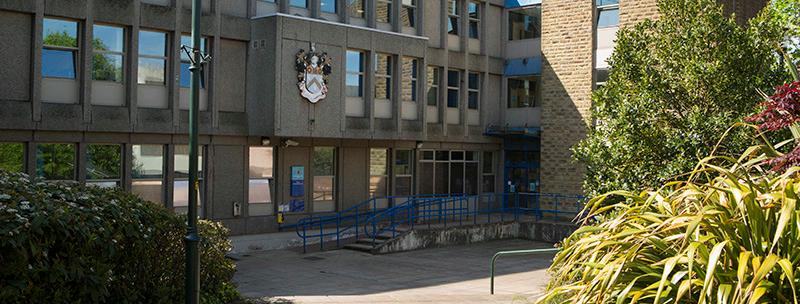
15 THE BRIEF APRIL 2024
Operation Logan awards
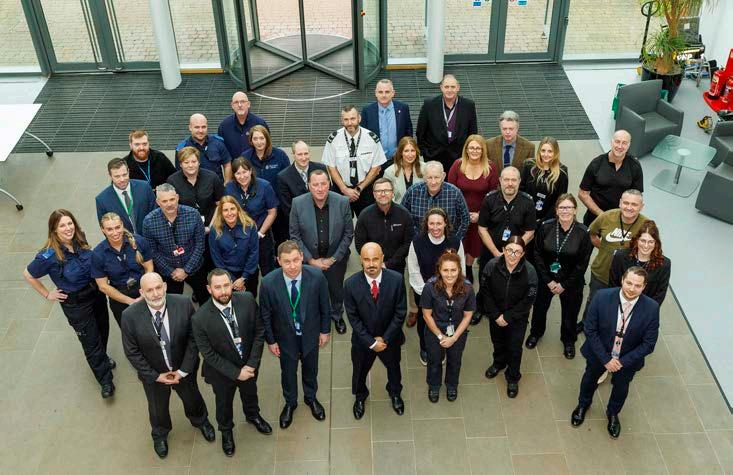
Friday 15 March saw the distribution of awards to officers and staff involved in Operation Logan, a particularly complex project which lasted over a year and spanned continents.
Following an intense fire at Bismark House Mill, Oldham, in May 2022, which took four days to extinguish fully, demolition workers found human remains at the site. A thorough investigation by GMP’s Disaster Victim Identification team found that the remains were of four Vietnamese men, Cuong Van Chu, Uoc Van Nguyen, Duong Van Nguyen and Nam Thanh Le, who had been reported missing around the time of the fire but who no-one had realised were inside the building. They were victims of modern slavery, exploited and locked in the building by organised criminals; among the most vulnerable in our society.
The search and retrieval of the men’s remains was a technically daunting task in itself; and the process of repatriating and returning the remains to their families in rural Vietnam was lengthy, complex and at times hazardous, with more than a year elapsing between the initial discovery of the remains and their final return to the families.
While the investigation was ongoing, family liaison officers (FLOs) travelled to Vietnam to meet with the families and obtain DNA samples; a task which required them to learn the appropriate greetings and cultural mores, take a total of eight flights in as many days, and provide compassion and support to
the grieving family members. On their return to the UK, the FLOs remained in touch with the families, keeping them abreast of developments and explaining distressing details of a particularly horrific case with tact and empathy.
At the event, organised by Wendy Docker and Lucy Carr of GMP’s Awards team, the team members were awarded ACC’s Commendations; while Senior Identification Manager Supt Lewis Hughes, who led on the case, was also given a certificate from national DVI lead DCC Jane Gyford.
Ch Supt Jon Chadwick told the team: “The value of DVI is when it matters –and unless you look after the dead and you look after their families, nothing else matters.
“This was a particularly difficult job with few resources; not everybody got it, but you did. The service provided by everyone in this room to the dead and their families has been exemplary. Through language barriers, travel and navigating Vietnamese authorities, you showed extraordinary care and empathy in representing the dead.
“This case will be used in presentations for years to come as an example of how good it can be. We don’t normally do award ceremonies for DVI, as there’s nothing to celebrate –but everyone in this room is worthy of recognition.”
ACC Rob Potts, who presented the awards, said: “We deal with all types of incidents and all sorts of tragedy. Not everyone gets DVI; and not everyone got the sheer scale, complexity and
range of challenges thrown up by Op Logan. This has been a phenomenally challenging job and I cannot put into words how proud I am to have achieved what we’ve achieved. At the root of everything you’ve done is a commitment to respecting the deceased, honouring their families, and returning them home.”
Senior Identification Manager
• Lewis Hughes
DVI management/Family liaison
• Gemma Acton
• Danielle Bullivant
• Matt Hamer
• Susannah Holt
• Carl Kelly
• Wes Knights
• Paul Lever
• Rebecca Moss
DVIF/Search
• Antony Cregan
• John Davies
• Gareth Greaves
• Clare Hall
• Emmet Hynes
• Simon Judd
• Scott Kerr
• Laura Magee
• Vicky McGuigan
• Diane McInnes
• Andrew Parry
• Stuart Platt
• Tony Platten
• Luke Rose
• Gareth Rowe
• Neil Simmonds
• Kathryn Turner
• Grant Wilson
CSM/I/Imaging
• Steve Abell
• Fiona Barrett
• Graham Brierley
• Paul Brogan
• Harry Bulmer
• Peter Andrew Cassidy
• Beverly Cluskey
• Hazel Hibbert
• Natalie Entwistle
• Karol Lorne
• Katie Mooney
• Victoria Murray
• Louise Noble
• Rachel Peary
• Amy Postill
• Jessica Taylor
• Nia Sheldon-Davies
• Jon Stratton
• Jane Wilcock
• Victoria Wrigley
16 THE BRIEF APRIL 2024
The Chief Constable’s 2024 roadshow is coming – and one session is already booked to capacity.
There are still seats available at the remaining seven events, to be held at venues around Greater Manchester between 30 April and 2 June.
All members of the force are urged to attend one of the sessions, which will focus on recognising and celebrating achievements within the force over the past year and making plans for further success in the year to come.
We have arranged eight sessions across four dates and three venues to provide the opportunity for all members of the force to attend. The following timeslots are still available:
• Tuesday 30 April, 10am to 12 noon:
AJ Bell Stadium, Salford
• Tuesday 30 April, 1:30pm to 3:30pm: AJ Bell Stadium, Salford
• Friday 3 May, 1:30pm to 3:30pm:
Midland Hotel, Manchester
• Thursday 9 May, 10am to 12 noon: Midland Hotel, Manchester
• Thursday 9 May, 1:30pm to 3:30pm: Midland Hotel, Manchester
• Tuesday 14 May, 10am to 12 noon:
Bolton Stadium Hotel, Bolton
• Tuesday 14 May, 1:30pm to 3:30pm:
Bolton Stadium Hotel, Bolton
Please note that the morning slot on Friday 3 May is now full.
To book your place, visit https:// forms.office.com/e/gtLv3hfddy and fill in the simple form, detailing your
name, collar number, the branch/ district you work for and your chosen session by the deadline of Monday 22 April. You must clear attendance with your line manager before you book a slot.
In the lead up to the roadshow, we want to hear how you have contributed to GMP’s continued evolution over the past year. We want to know:
• What are you most proud of achieving this year and why?
• What do you think we still need to do?
You can a nswer both questions anonymously at https://forms.office.com/ e/5P014u6YYB.
Groundbreaking research aims to improve child-centred policing
GMP is currently undertaking a major research project focused on enhancing our child-centred policing approach. The study is being conducted by Dr Vicky Kemp from the University of Nottingham and Dr Miranda Bevan of Goldsmiths, University of London.
Both are experienced researchers who have undertaken research on children in police custody. Dr Kemp’s doctorate, from the Institute of Criminology at the University of Cambridge, was on diversionary practices arising out of pre-court decision-making and multi-agency collaboration when working with children who come to the attention of the police. Dr Bevan’s doctorate, from the LSE, examined children’s experiences in police custody.
The purpose of their research is to assess our current approach to child-centred policing, with a specific focus on precustody interactions, custody procedures, and training.
Dr Kemp explains: “We’re keen to bring out positives, but we’ve concentrated in our first report on frontline officers. It’s when we’re talking to managers involved in all these different agencies that you can see these green shoots and how this can come together into a positive framework for change.”
Early signs are promising, with Dr Kemp noting, “It’s been fantastic because the access we’ve been given to observe current practices says a lot about confidence and trust in the research. It is allowing the warts-and-all view of what’s going on. I think it shows a commitment to moving forwards and to making positive change.”
However, challenges remain, not just for our force but for policing across the UK. “It isn’t an easy journey,” acknowledges Dr Kemp. “12 months ago people referred to being in a dark
place. There is progress with new and older initiatives coming together. While the picture is complicated, we have been given an opportunity to look at the frontline and see what’s happening on the ground. We haven’t got all the answers yet, but we have identified some of the problems.”
GMP has opened its doors to enable this important internal research. Superintendent Richard Timson, who is responsible for coordinating this project, states, “As a force, there has been significant steps achieved over the past 12 months to be increasingly ‘child focused’ in our policing approach. The force has a CCP Strategy, and there is substantial work being delivered across GMP to meet the strategy priorities. Dr Vicky Kemp and her team are providing vital insights and recommendations enabling GMP to develop opportunities across this cross-cutting area of policing”.
Dr Kemp has been warmly welcomed during her time in Greater Manchester. “The help and support that we’ve received has been tremendous,” she says. “It’s quite nice when I get officers, particularly supervisors, saying ‘I wouldn’t have said this to somebody else, it’s because you’re independent’...I think that’s really satisfying, because it’s only by knowing what happens on the ground that we can understand the complexity of frontline policing of children. We have to show that we can take on board these comments, and then that people can trust us with this information.”
The research findings will be used to inform future work, strategy, policy and investment around child-centred policing. As Dr Kemp sums up: “You’ve given us a great opportunity to help shape the future.”
17 THE BRIEF APRIL 2024
Wellbeing at Greater Manchester Police
The month of April sees your wellbeing team focus on stress and trauma – two things anyone working in a 24-hour emergency service will experience regularly –with a view to exploring their wellbeing implications and assessing potential workarounds.
Understandably, stress is commonly associated with negative feelings and experiences; but a degree of stress can be useful and necessary as our bodies’ way of telling us that we’re taking on too much. Perhaps a better way of looking at it is to ask: do we understand our own response to stress well enough to recognise when we need to do something to manage it, and are we managing our stress effectively?
Effective stress management relies on self-care techniques and positive coping mechanisms. Different techniques may work better for different people – some people benefit more from working out stress through exercise or socialising, for example, while some may prefer meditation or taking a long bath.
Following a traumatic event, most people will experience some form of acute stress response. While the majority of us will process the trauma without the need for clinical intervention, some people who experience trauma will go on to develop posttraumatic stress disorder (PTSD). It should be emphasised that if a person does develop PTSD, it does not mean that they are mentally ‘weak’ and it is in no way a reflection on their ability to do their job.
To explore these topics in more detail, the force wellbeing and TRiM coordinators have come together to offer some short inputs via MS Teams. You can contact the wellbeing team at wellbeingvolunteercoordinators@gmp.police.uk to book onto any of the following sessions:
• Thursday 11 April, 11am – Trauma
• Friday 12 April, 2pm – Understanding stress
• Thursday 25 April, 1pm – Trauma
• Monday 29 April, 10am – Understanding stress
Stress awareness month
The theme for this year’s Stress Awareness Month campaign, spearheaded by the Stress Management Society, is #LittleByLittle, highlighting the transformative impact of consistent small positive actions on overall wellbeing.
The campaign aims to emphasise how even the smallest steps taken each day towards self-care and stress reduction can yield significant improvements in mental health over time.
They are encouraging you to focus on making manageable adjustments to your daily routine.
While the impact of small actions on their own may seem little, the cumulative effects of these habits can end up being profound! You can access resources including awareness posters, daily wellness challenges and much more from the Stress Management Society’s website at www.stress.org.uk.
Free joint pain management clinic
Nuffield Health is offering a free-to-access programme, designed to help users self-manage chronic joint pain and lead a more independent life.
The six-month programme begins with 12 weeks of lifestyle advice and exercise sessions led by a rehabilitation specialist. This will equip you with the tools to better manage your pain.
Participants will receive a free joint pain health check at the beginning, partway through, and at the end of the programme
to show their progress and help Nuffield Health to continually improve delivery. Users attend group sessions which act as a support network to share their experiences and are granted access to a range of useful online articles throughout; as well as access to their nearest participating gym to help maintain their progress.
You can find out more or apply to the programme via https:// www.nuffieldhealth.com/about-us/our-impact/healthy-life/jointpain-programme.


18 THE BRIEF APRIL 2024
Bee in the Loop - Salford Figures
Bee in the Loop is our dedicated community messaging platform enabling officers and staff to send localised updates to our communities.
Updates can include crime prevention messaging and advice or an introduction from a new neighbourhood officer or member of staff.
To the right are the latest stats for Salford in terms of membership and percentage of people who are engaging with your messages.
We encourage you to use Bee in the Loop and if you have any concerns or questions then please get in touch with the Corporate Communications branch via Jessica Allen-Millbank.
Our team can offer training sessions as well as providing best
practice examples of messages which can be shared. Thanks for
your continued support with our new platform.
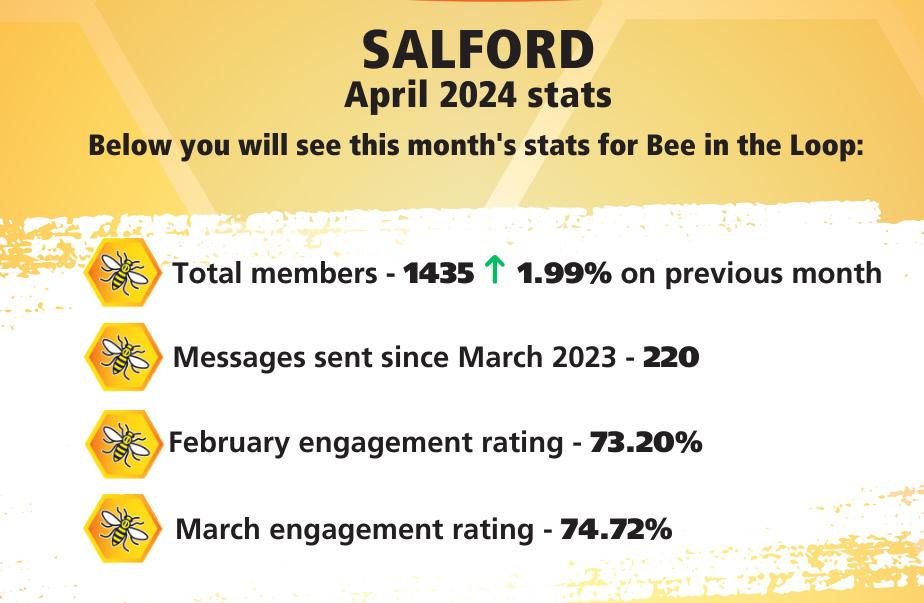
Right Care, Right Person training launches
Right Care, Right Person (RCRP) launches at GMP this summer.
RCRP is a national programme which aims to ensure that individuals in need receive the right care from the right agency; this agency isn’t always the police.
Please note that RCRP is not yet live and you should not change your way of responding to calls until you are officially told to do so.
In preparation for the forcewide rollout of RCRP later this year, trainers are now delivering a range of comprehensive training programmes to different areas of the force to ensure the principles of RCRP are
communicated and understood.
RCRP training lead DCI Richard Thompson said: “I am delighted the culmination of months of brilliant work by the RCRP team has resulted in the start of training on Tuesday 27 February.
“The training has already welcomed over 150 of our FCCO colleagues and will continue until the end of May 2024, training over 1,000 in total! From our own observations and the feedback so far, the training has landed well; and we continue to adapt and improve based on interactions from our colleagues.”
All officers and staff who sign up

to an RCRP training session will be sent a link to an e-learning package from the College of Policing, to be completed before their training takes place. Completion of the package, which provides some background and preparation for the training, is mandatory.
RCRP trainer Sgt Nick Warburton noted: “Staff will learn about the changes so they understand their role-specific responsibilities under RCRP. As well as the training providing the opportunity to ask questions, staff will learn new ways of working while in a safe learning environment, where they can practise assessing certain calls to determine whether a police response is required and where to direct the public.
“By attending these courses, staff will have the confidence to apply the policy and use the assessment tool in operational situations once the force goes live.”
As the launch of RCRP draws closer, officers and staff will be able to access a range of online resources and face-to-face assistance, with additional support to be made available on and around the launch date.
19 THE BRIEF APRIL 2024
Day in the Life of a District Licensing Officer

I am Krys Urbaniak and I’m a district licensing officer for Salford.
I have had numerous roles whilst working on the Salford District, which has held me in good stead for my current position.
I am one of 10 district licensing officers for GMP who all have delegated authority to act on behalf on the Chief Constable – this is because the Licensing Act refers to the chief officer of the police as the office which represents the police.
I am based in the partnership hub and work out of Pendleton Police Station and Salford Civic Centre, in the same office as Environmental Health, Environmental Protection, Trading Standards and Local Authority Licensing. I also work
alongside Fire and Rescue Service, HM Revenue & Customs, UK Borders Agency and Crown Prosecution Service to name a few and as such have built-up strong contacts across Salford with our partners.
In my position of licensing officer, my principal role is to deal with licensing issues relating to the Licensing Act 2003. Activities under the Act include, sale of alcohol, live and recorded music, dance performances, theatre and films, late night refreshment (11pm-5am), Indoor sports, boxing and wrestling. This includes hotels, takeaways, clubs, off licenses, supermarkets, nightclubs.
I am also involved in taxi licensing, street traders, explosive permits, betting and gambling permits, scrap metal dealers, Security Industry Authority (SIA) SPOC – for security/door staff.
Day-to-day activities can include:
• Collate information for and prepare the annual licensing report.
• Prepare files in relation to court/ local authority meetings. Process liquor licensing applications.
• Process applications for betting/ gaming/licenses/permits.
• Process applications for public entertainment licence applications.
• Maintain licensing records.
• Review applications for both personal licenses and taxi licenses
• Undertake research relating to licensing matters (liquor, betting, gaming, lotteries).
The list could go on but I want you to keep on reading….
I can assist in many ways with my contacts within local authorities and partner agencies as mentioned previously. I can help with any enquiries you may have relating to licensed premises, gambling establishments, security/door staff, taxi licensing, (tracing drivers/vehicles and operators) and I have leverage with licensed premises to ensure that they comply fully with police enquiries.
I can revoke or suspend alcohol licenses from premises (with evidence), or issue them with conditions to operate i.e. extra CCTV requirement for door staff and sanctions to prevent crime and disorder. I can provide evidence to remove licenses from taxi drivers, SIA registered staff, street traders and gambling establishments.
If there’s anything you think can help, don’t hesitate to drop me an e-mail or give me a bell.
Targeted day of action results in 18 arrests across Salford
On Thursday 14 March, teams from across Salford made 18 arrests in a targeted day of action.
The day was aimed at disrupting and apprehending suspected offenders, safeguarding vulnerable victims, and raising awareness of support and report mechanisms for those experiencing domestic abuse.
Domestic abuse is a forcewide concern and can impact anyone. It’s not always physical; it can involve emotional and psychological abuse, coercion, and verbal abuse. In some cases, perpetrators may also resort to sexually abusing their victims.
Whilst action against perpetrators and support for victims is something that happens every single day in Salford and across the force area, days of action such as this bring more resources together to tackle the issue and aim to send a clear message to those committing offences that they
can’t hide from the consequences of their actions.
The district launched their trial of a new domestic abuse app WEPROTECT for officers to use enabling them to refer victims and survivors to partner agencies, benefitting from early legal assistance and intervention, ensuring that the relevant course for protection is actioned without delay.
Salford Detective Inspector Dave Ogden, who co-ordinated the day’s activities said: “The operation was hugely successful, with 18 arrests made for domestic abuse related offences.
“Most importantly, we were able to speak with and safeguard 15 victims, including some who had previously been too scared or unwilling to engage with services. This has been done in partnership with local service, Safe in Salford, as well as through
conducting welfare checks and Clare’s Law disclosures.”
The team also carried out a number of DVPO (domestic violence protection order) checks, which look to ensure offenders are not causing further harm to their victim, or to anyone else.
Salford’s Vulnerability Lead Detective Chief Inspector Yanica Weir commented: “I’d like to thank everyone for their time and contribution to Salford’s domestic abuse day of action. The operation was a massive success for disruption and providing safeguarding and support to some of our most vulnerable victims.
“This shows the impact we can have when we all work together. A special thanks to Sergeant Adele Ainscough for pulling all of this together and organising us all.”
20 THE BRIEF APRIL 2024




































































